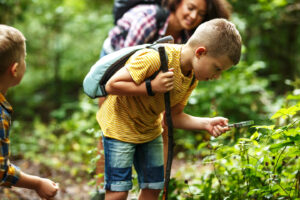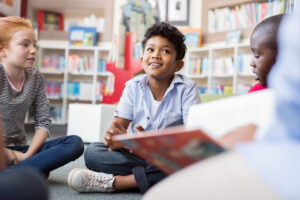The COVID slide
Summer is usually a time of fun and carefree adventure for kids as they take a break from school. Education experts know that it’s also a season where many students regress or forget much of what they learned during the year. It’s called the “summer slide.”
2020 has thrown everything into chaos because of the coronavirus pandemic. The fight to slow the spread of COVID-19 has led to school closures across the country. Many school districts do not plan to reopen until the fall. Now experts worry that students will experience the “COVID slide,” which may be even worse.
We discuss what the COVID slide could mean for students, especially those with learning differences, and how you can help them get over the hump until school is in session again.
The summer slide explained
What does the summer slide mean in terms of academic performance? It’s a problem that education experts have been studying for several decades.
A 1996 study found that kids habitually lose knowledge in reading and math over the summer break. They don’t always catch up once school starts in the fall, either. In fact, every year, the loss of knowledge can continue to pile up.
A 2015 study found that children in grades three – five lose around 20% of their school-year gains in reading and 27% of their gains in math. The losses are most significant in the early grades, kindergarten – second grade.
So, how does the COVID slide compare, and why are experts so worried?
Why does the COVID slide matter?
In short, education experts fear that prolonged school shutdowns could turn out to be worse in terms of a loss of knowledge.
Summer break, in most places, ends up being about 8-10 weeks long. However, many school districts shut down in mid-March. Some counties have already declared that schools will not reopen until the fall, which might be the end of August or even September.
By the time some students return to school, they will have missed around six months, if not more.
It’s not hard to imagine that the summer slide will increase exponentially due to the much longer COVID-19 shutdown.
The possible consequences of the COVID slide
A new study was just released in April from the Northwest Evaluation Association (NWEA). The study looked at achievement and data from over 5 million third – eighth grade students who participated in the NWEA’s most recent MAP-Growth test.
Education Week took a closer look at the study. “The researchers used the data to project growth trajectories for the students under two scenarios: a ‘melt,’ in which students basically gained no ground during the school closures; and a ‘slide,’ in which students lost ground academically during the closures at rates similar to those seen over the long summer break.”
Previous research has found that students habitually lose two weeks to two months of academic growth during the summer.
Based on how long schools will be closed due to COVID-19, the NWEA found that students might only retain about 70% of their reading progress compared to a normal year. Math retention was even worse, with students losing as much as 50% of their knowledge.
What happens to children with learning differences?
Children with learning differences, cognitive, and behavioral disorders will be impacted even more by prolonged school closures. There are around 7 million students with special needs in the U.S. This includes students with dyslexia, ADHD, and those who struggle with executive function skills such as organization and time management.
Children with cognitive or developmental conditions thrive on the routines that are established in school. They also benefit from one-on-one instruction.
“At school, they get individualized attention from professionals who are trained in, and deeply familiar with, their unique ways of thinking, perceiving, and processing,” according to The Atlantic.
Parents are not teachers, and they are not equipped to handle learning differences. Yet many are now being thrust into that role. These parents (and their kids) need specific tools and resources so their children don’t lose the progress they may have achieved in school.
Find help at The Learning Lab
The COVID slide is something every parent should be concerned about, especially if you have a child who already struggles with learning differences. While school districts and teachers are working hard to create remote lessons, you can also play a role.
If your child needs help during these difficult times, The Learning Lab Florida is still here for you. We offer Virtual Learning solutions for students in South Florida.
These solutions include:
- One-on-one intervention – Individual sessions with tutoring in reading, writing, math, reading comprehension, and vocabulary
- Distance learning support – Includes virtual classes and instruction in organization, study skills, and time management
- Academic support for all subjects
- Access to academic software – Includes biweekly Zoom sessions to support reading foundational skills, reading comprehension, math, language/literacy, and cognitive training
- Homeschool support
Take our survey to find out how we can best serve you and your child.





